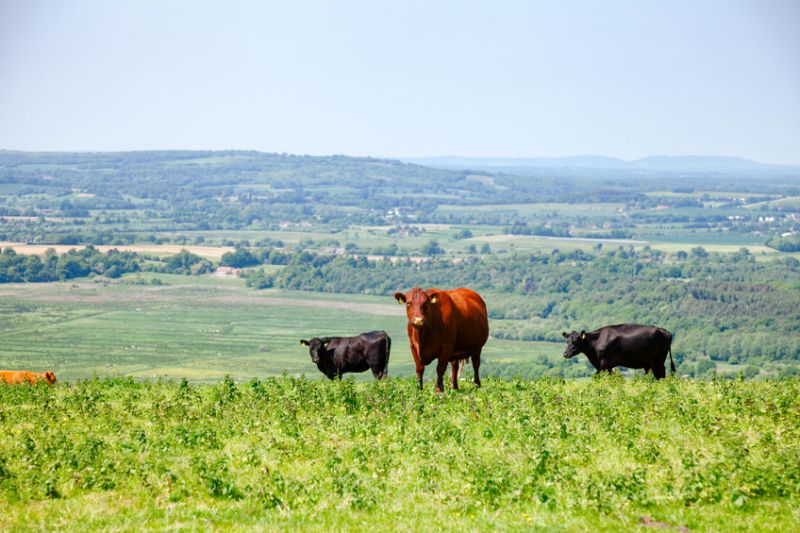Farmers criticise media for 'biased' IPCC reporting

Farming groups have criticised the media for 'biased' and 'selective' reporting of the recently-released IPCC report which calls on a re-shift in global land use in reducing emissions.
A major report on land use and climate change was released by the UN's Intergovernmental Panel on Climate Change (IPCC) on Thursday (8 August).
Prepared by 107 scientists, the report says that if land is used more effectively, it can store more carbon emissions.
It recognises the important role animal products play in a balanced diet, and when produced sustainably in low greenhouse gas emission systems is part of the solution to climate change.
However, the NFU has said it is 'frustrated' to see some of the media using the report to pursue an anti-meat agenda.
Some media channels were focusing heavily on pointing the blame at meat and dairy consumption while advocating a vegan diet.
On a day when #farm24 has been celebrating the phenomenal industrybwe work in it is a shame @Minette_Batters myself and many others have spent a huge proportion of our day defending the industry against biased & very selective reporting of the IPCC report #BackBritishFarming
— Stuart Roberts (@HertsFarmer) August 8, 2019
Farmers took to social media in their droves to criticise coverage of the report.
Stuart Roberts, NFU Vice President, said union officials spent a 'huge proportion' of yesterday defending the industry against 'biased' reporting.
NFU President Minette Batters said while the report makes 'many valid suggestions', there was no mention of the damage of processed imported vegan food on the environment.
Thank you @Minette_Batters and @HertsFarmer the @BBCNews and their reporter need educating about farming in the UK. We have some of the best livestock and standards in the world. And these so called journalists need to know this. But how do we get this across to them.
— Oliver Edwards (@EXMOOR_FARMER) August 8, 2019
10% of the emissions... 90% of the media coverage...
— Will Case (@will_case) August 8, 2019
Shame on you @BBCNews you are demoralising our great British farming industry... pic.twitter.com/3ClBEMwCDA
One farmer said it is 'demotivating' to see a one-sided approach to reporting.
It comes as the farming industry aspires is to become net zero – reducing greenhouse gas footprint and offsetting emissions – by 2040.
The NFU highlights how this can be achieved while keeping UK agricultural production levels steady.
Had to get this off my chest this evening. ?? or ?? ??@bbcnews @RHarrabin pic.twitter.com/YNTupUAHgd
— ?????????? ???????????? ???????? (@DavidButler34) August 8, 2019
I’m really not one to bash journalists. But the reporting on this has been appalling. So many seemed to have written their cut & paste ‘go vegan’ pieces already without pausing to look at what the report actually says. It’s pro balanced sustainable agri; meat, dairy and plants.
— Owen Roberts (@owenceredigion) August 8, 2019
NFU President Minette Batters said: “This would only export our production to countries which may not have the same standards of environmental protection.
“Our plan for achieving our net zero goal is focused on making the most of our natural resources.
“With 65% of UK farmland best suited to growing grass, this means using our grasslands, which are also a huge store of carbon, to produce high quality beef and lamb.”
She added: “British farmers are determined to continue reducing methane emissions through a variety of methods, including dietary changes and breeding techniques.
“Alongside this, we are also looking for ways to continue to improve soil health and increase organic matter within our soils, which is one of our greatest assets.”








